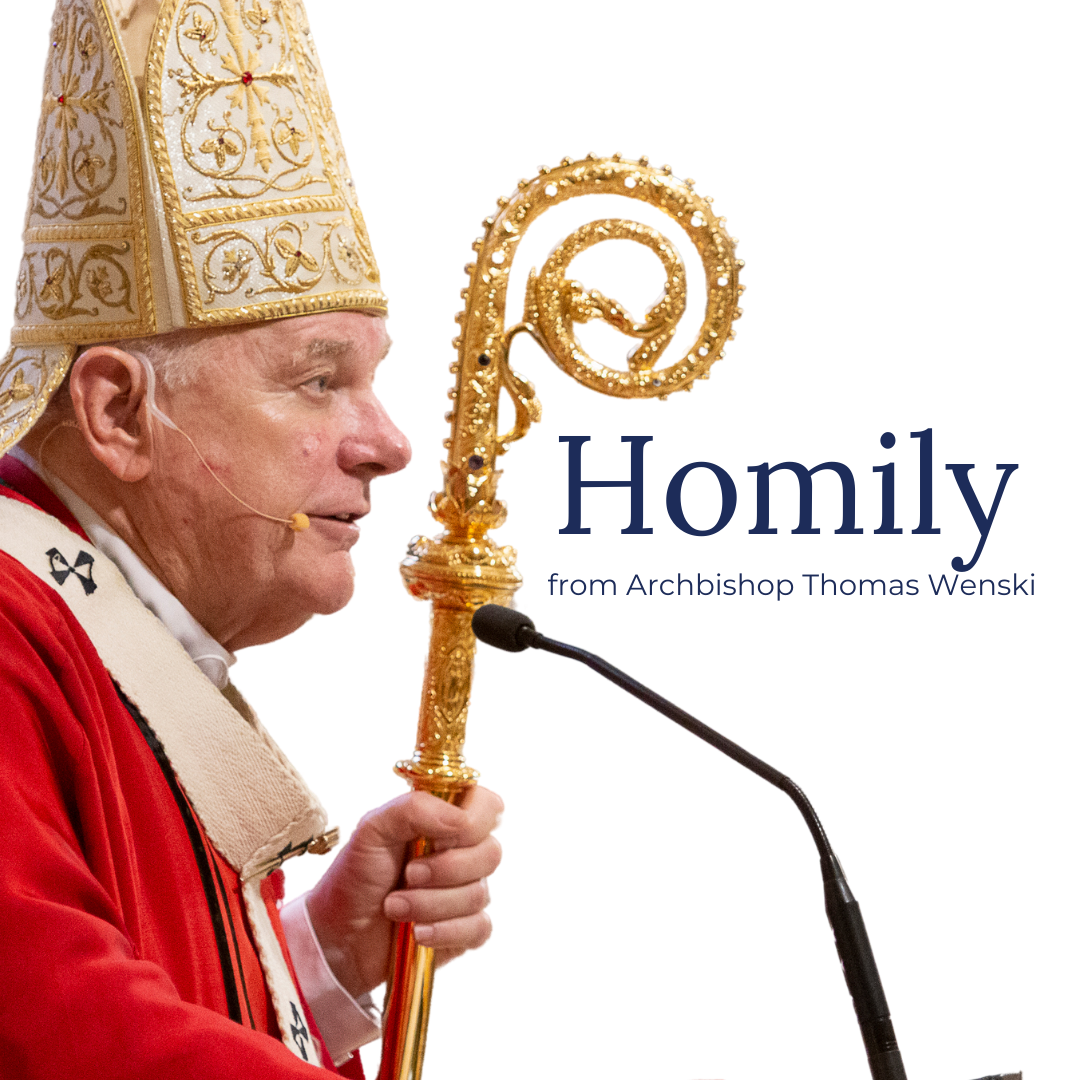By Archbishop Thomas Wenski - The Archdiocese of Miami
Homily by Archbishop Thomas Wenski at Mass at the Knights of Columbus' Florida State Convention on Friday, May 23, 2025, in Jacksonville, FL.
“Love one another,” Jesus tells us in this morning’s gospel reading. If someone were to ask you to summarize the entire Bible in a few words you could do it using just one word. And that word would be “Love." All the Torah and the prophets are expressed in this one commandment: Love God, love your neighbor.
Pope Leo XIV was an Augustinian friar and at his inaugural Mass this past Sunday, he quoted Saint Augustine’s famous prayer: "O Lord, our hearts were made for thee and our hearts will never rest until they rest in thee." Well, since Pope Leo quoted St. Augustine – and was so close to the city that is named for him, I want to remind you that St. Augustine of Hippo once famously said to his parishioners: "LOVE AND DO WHAT YOU WANT."
Of course, St. Augustine’s parishioners understood what he was saying. Many people today might not. But St. Augustine’s parishioners knew that he meant that if you truly loved, you would want to do what is right, what is just, what is pleasing to God and is in accord with his will.
But that’s the problem today: the word “love” has come to mean anything you want it to mean, which means it means nothing. But love cannot mean “nothing” — for family, marriage, vocation and even nation are built on the foundation of love. So what love means is important.
And so, if the Bible can be summarized by the word “love,” it is important to know what the Scriptures do mean by love. And Scriptures — and the life of Jesus especially — tell us that love is not just a feeling or an emotion. It is an action, a decision made, a commitment kept.
To build a life on emotions or sentiment would be to build on sand, to build without a solid foundation.
Come the storms of life — and storms inevitable come — the sand erodes, the emotions flee. And family, marriage, vocation crumble. Family, marriage, vocation need to be built on the solid foundation of a love that is “rock-hard” to resist the storms of life.
And so, at the Last Supper, he gave his disciples a new commandment that goes beyond the Old Testament exhortation - to love your neighbor as yourself. He tells us: Love one another as I have loved you.
Jesus teaches both by word and example that love means commitment. There’s a Haitian proverb: Di wi, pa monte mòn. Roughly translated it means: “Saying yes does get you up the mountain.” Because of our fallen human nature, it is hard for us to say “yes” and “live” the “yes.”
But Jesus says “yes” and goes up Mount Calvary to die saying “yes” to his Father. From the cross he teaches us that love means commitment, it means sacrifice. And when Jesus says, “Forgive them, they know not what they do” and to the good thief, “Today you will be with me in Paradise,” love means forgiving.
St. Paul in his letter to the Corinthians (a reading popular at weddings) says that “love is kind, love is patient, love is not jealous," etc. Love is the “more excellent way.”
But for love, to be love, it must be love in truth, when truth requires us to seriously change something in our lives, in our attitudes or in the choices we make.
As parents know, love sometimes must be tough love. Leo XIV, in recently addressing the Diplomatic Corps, said:
“For her part, the Church can never be exempted from speaking the truth about humanity and the world, resorting whenever necessary to blunt language that may initially create misunderstanding. Yet truth can never be separated from charity, which always has at its root a concern for the life and well-being of every man and woman. Furthermore, from the Christian perspective, truth is not the affirmation of abstract and disembodied principles, but an encounter with the person of Christ himself, alive in the midst of the community of believers.” (Leo XIV to Diplomatic Corps)
To embrace Jesus’ new commandment of love, “to love as I have loved you,” is to embrace the Cross. To embrace the new commandment of love is to make our own Exodus, a coming out of ourselves, our self-love, our self-assertion, our self-seeking and thus to “Passover” to a new way of living life. To have fellowship with Christ means dying to self; it means learning to wash the feet of our brothers and sisters; it means becoming for them, as Christ became for us, bread broken so that they might have life.
Today, as you begin the State Convention, I want to underscore the role of the Knights of Columbus in the life of the Church in our State – and in the Bahamas.
On behalf of all the bishops I want to thank you Knights for the unwavering support of your bishops and your parish priests. The work of the Knights to support family life, to defend and promote marriage understood as a permanent union between one man and one woman is well known and appreciated. Your encouragement of vocations to priesthood and religious life helps young men and women respond courageously to God’s call. You show your love of your Church through concrete actions in so many ways. Thanks to your support, our pregnancy assistance centers count on ultrasound machines so that an expectant mother can see her baby in her womb.
Blessed Father McGivney gave a great gift to the Church in this country and beyond by founding the Knights of Columbus. Thank you.

